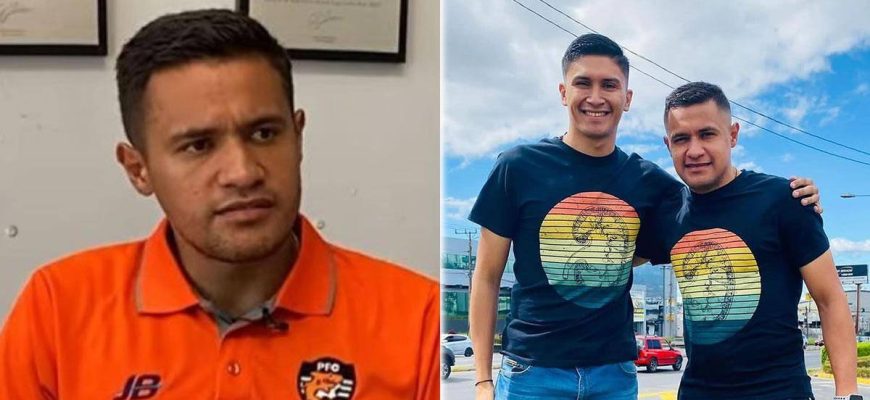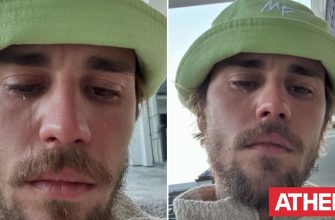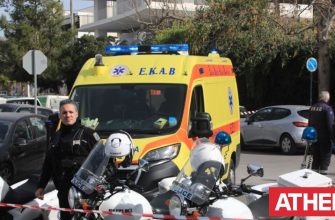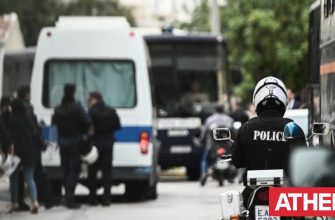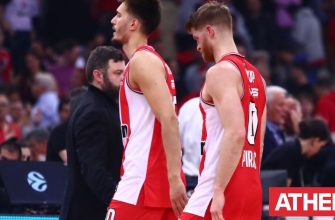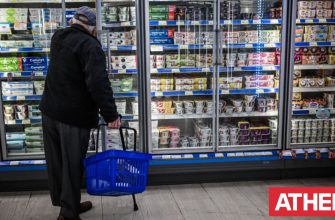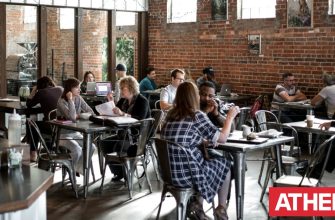Costa Rica.
February 2023 was a very difficult date for the life of Roger Rojaswho had to stop playing football at 32 years of age while in the first division of Costa Rica.
At the beginning of the retirement announcement, the Catracho striker did not say what was happening with his farewell, leaving Central American football surprised, especially the Honduran team in which he celebrated league titles with Olympia.
However, a year after announcing his goodbye, Roger Rojas revealed that they detected an anomaly in his kidneys from which he suffered a painful process to recover.
In March 2024 the ‘Ro-Ro’ He received a great gift that changed his life. Luis Rojas, his brother, donated a kidney to him, to whom he thanked for his tremendous gesture that saved his life. One month after the transplant operation, Roger Rojas He broke his silence about everything he suffered with his illness.
EXCLUSIVELY with Diario La Prensa, he told how painful it was to retire, how he found out about his condition and the tearful message he sends to kidney patients in Honduras and around the world.
Talk with Diario La Prensa
How did you find out about your illness?
It was last year (2023), I was with my wife at an appointment to review the tests that she always did, when the doctor told me: Roger, I think you have to stop, my recommendation is that you do not continue any further, both of your kidneys do not. They are working 100%. As a doctor and league player, I recommend that he stop, he has to have a transplant. Yes, it was shocking, I cannot deny that it hurts, because from one day to the next they tell you “no more”, but I had the spiritual and mental strength that at some point that could happen because the disease was detected in Colombia, but I was not delicate, I was fine in everything, they told me to take care of myself, that I could play perfectly for a year in Cartaginés without any complications, I played in Sporting (San José) without having any symptoms, nothing.
Then when I arrived in Puntarenas I realized that my kidneys were not working well, they were not working. I told my wife: love, God has already decided for us, let’s not be against him, we have to be strong because God prepared me emotionally, he always gave me a positive possibility, I still have it, he strengthened that part of me that maybe I didn’t. I knew about myself, I faced it with humility and said: God, if you want this, I accept it and we are going to move forward, I know that everything is going to be fine. The doctor explained to me what was next and yes, thank God we were able to get through that stage that was hard, it was difficult, because the next day I had to get up, go to train, the next day the same. I told my wife: saying it is not the same as already living it, I lived it, it was difficult, I can’t deny it.
How did it physically manifest itself in the capacity that you were not going to continue playing, you felt tired and your body did not respond to the high level?
In Puntarenas I had a very good preseason. I mean, I had this illusion that I was going to do well, because of the preseasons that I have done in the teams, I think I had an incredible preseason, I scored a lot of goals in the friendlies. Well, I had never scored many goals in a preseason, I enjoyed it incredibly without knowing that it was my last one. That’s why I tell you that life changes from one day to the next, I don’t believe it, but when I got home I was more tired, I felt bad, but I said that if I arrived more tired than normal it was because I was hotter. Puntarenas is super hot, it’s like Nacaome, San Lorenzo type, super hot, the temperature was 40, 38 degrees, very hot.
I said that it was because of the heat, the climate that I am feeling tired, but it was the disease that was advancing, thank God I was able to detect it in time, I was always responsible with my health, I never wanted to expose myself, I always spoke with the doctors and They told me I could play, as long as my creatinine didn’t go up. And well, when I had those tests done in January, I don’t remember the date, the doctor told me not in February, my creatinine was high. So, the best thing was to stop, not expose myself to the sun, dehydration and then we continued with the process, that’s why I had to stop.
Under normal conditions, retirement hurts footballers, what has it been like for you?
To be honest, today I heard a conference from a sports psychologist to some coaches from Latin America in which I am involved to continue learning and he touched on a topic. What did he say? When the player retires he goes through mourning, that mourning costs him to turn the page, it was difficult, it costs a lot. Imagine being told: Roger, he can’t continue playing, come here, be part of a coaching staff. I went, I put on tennis shoes and I said that I was not going to put on heels again until the day I play again, I always thought about that. Well, I went and imagine that they suddenly put you on the coaching staff. If I put a positive mind on it, I’m still part of football, of a team. Having been with Professor Segura and Diego (Vázquez), I spent the mourning there, blessed God that it happened that way. Today I can tell you that I miss him, I cannot be a hypocrite or a liar, I need it, sometimes I start playing with my son, I can tell you that I went through that mourning, but maybe not, that I need more time, time He will tell me.
I share what he said: that one sees true friends, when these things happen, when one has already retired, but I don’t know whether to compare with another, but in the process of this illness I felt a lot of solidarity, prayer. When I tell you about solidarity, it is a word of encouragement, it is not material, for me a gesture of solidarity is: how are you doing little brother? Today, I will tell you in this interview, with all due respect, that you were one of those, I do not forget, there was my message, you never asked me what I had, in this interview I tell you, I thank you very much, when I finished talking to you I told my wife: he gives me words of encouragement, I know many people who I thank him for sending me a message, because for me it was nice, today I don’t want to ignore it, I want to highlight it, God gave me many people who gave me encouragement, to give me support
Luis Rojas’ gesture meant a lot to you, he lives inside you, what was that experience like?
When the doctor told me that in order for me to be well and be able to recover, I had to have a kidney transplant from a living donor or a cadaver, they explained to me the process that a person who is compatible with me can be a possible donor and they asked me: what type of blood was it? I told them that my wife was willing to donate her kidney to me, the doctor told me yes, that it was a good option, but that if I had a brother, that my parents were alive, do tests on them, because here at the Mexico hospital we do transplants, yes If you get a donor, the process is faster, it does not mean that it lasts two months, it takes time, process, but if you have it, look for it. They told me to look for a direct family member, I remember that we went out with the doctor, we talked to my wife, I told her what had happened with the doctor, what was next. My doctor told me that if there was a direct family member, the chances of everything going well were better. The percentages of a brother, mother or father donating a kidney to a person who is suffering from kidney disease are successful.
So, when my dad called, they talked to my brother and about two hours later Luis Roberto called me and said: Roger, how are you? How do you feel? I’m fine, overall fine, positive. Then he tells me: look Roger, I talked to my parents, I want to tell you not to look for anyone, I don’t want “Mimi” (wife) to donate your kidney, because I’m telling you that kidney is mine, I’m going to donate it to you, God. You brought me into this world for a purpose, I was wondering what it was, I got it, tell me what I have to do. That day I hung up, I thanked God, you can’t find a kidney in a grocery store, in a supermarket, in any store. Having your brother tell you that, I still have that feeling when he told me that. Then I spoke to the doctor, I told him that my brother offered and he told me: Roger, now it’s your turn to do the immigration part, you have to get a residence permit, you can’t come and that’s it, remember that you are a foreigner, you have to be regulated by Social Security. We did all the paperwork, we got him residency, everything went well, the operation was a success.
Nobody does this if the person has not made merits in life
Many people have told me that (through tears). I tell you? I’m blessed, brother.
Message of support from Roger Rojas
Something I would like to highlight is that many people have written to me about my health problem, I have given people hope that for God nothing is impossible, God gave me a new opportunity to bear witness, blessings cannot be hidden, we must tell it, you have to tell it. This message is for all kidney patients in Honduras and the entire world, we must be persistent, we must be constant in the procedures with what the doctors tell us, there are always little angels that surprise us and change our lives.
